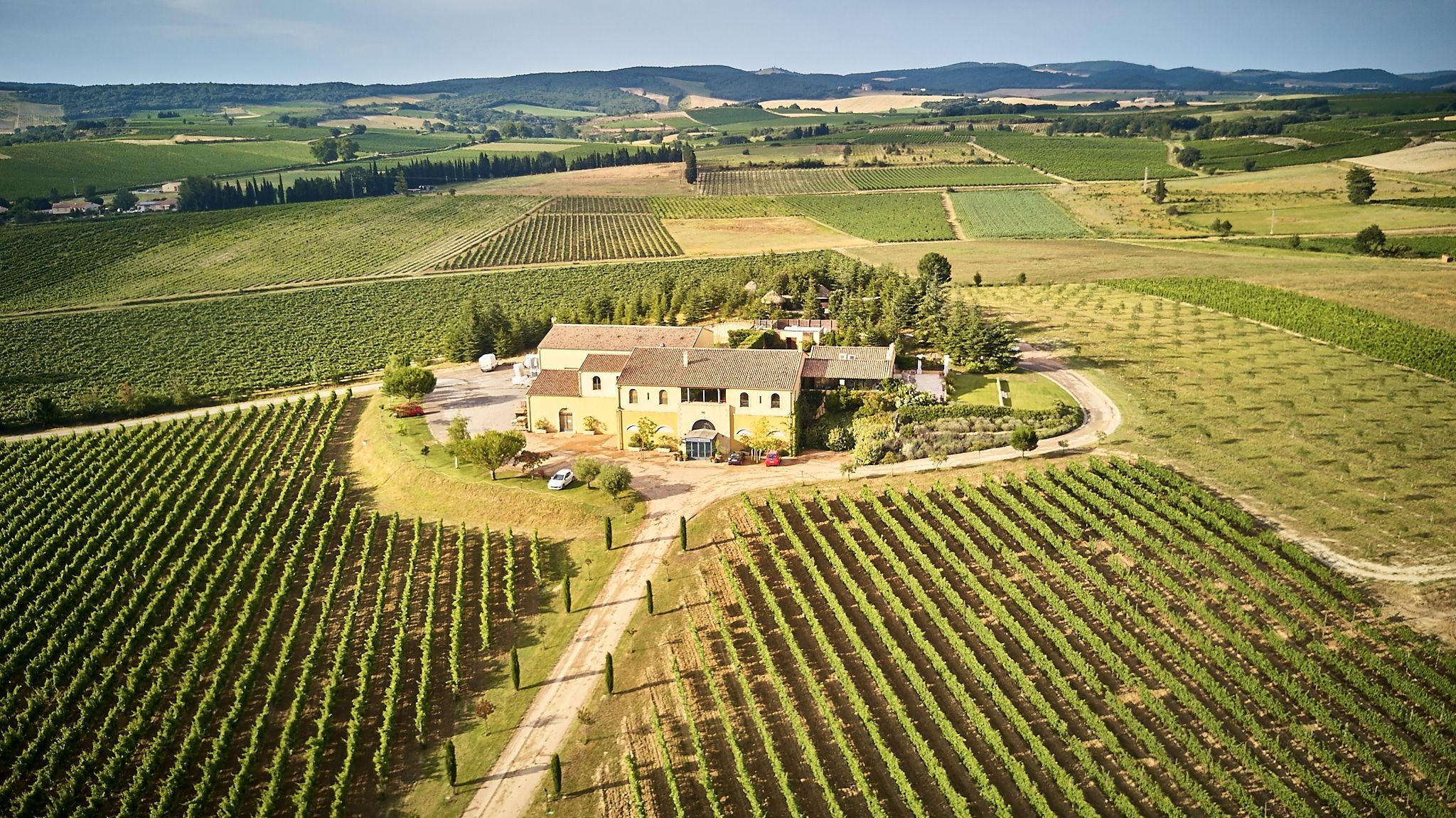Tell us about your background in wine and how you started in the industry?
It all started in Central Otago. I was a ski instructor there in the early 2000’s teaching some local vineyard owners kids and I had a few invites to and visited some of the Otago vineyards on the weekends.It was great exposure to the industry in one of the most beautiful parts of the world. That was the catalyst to engage once back in UK.
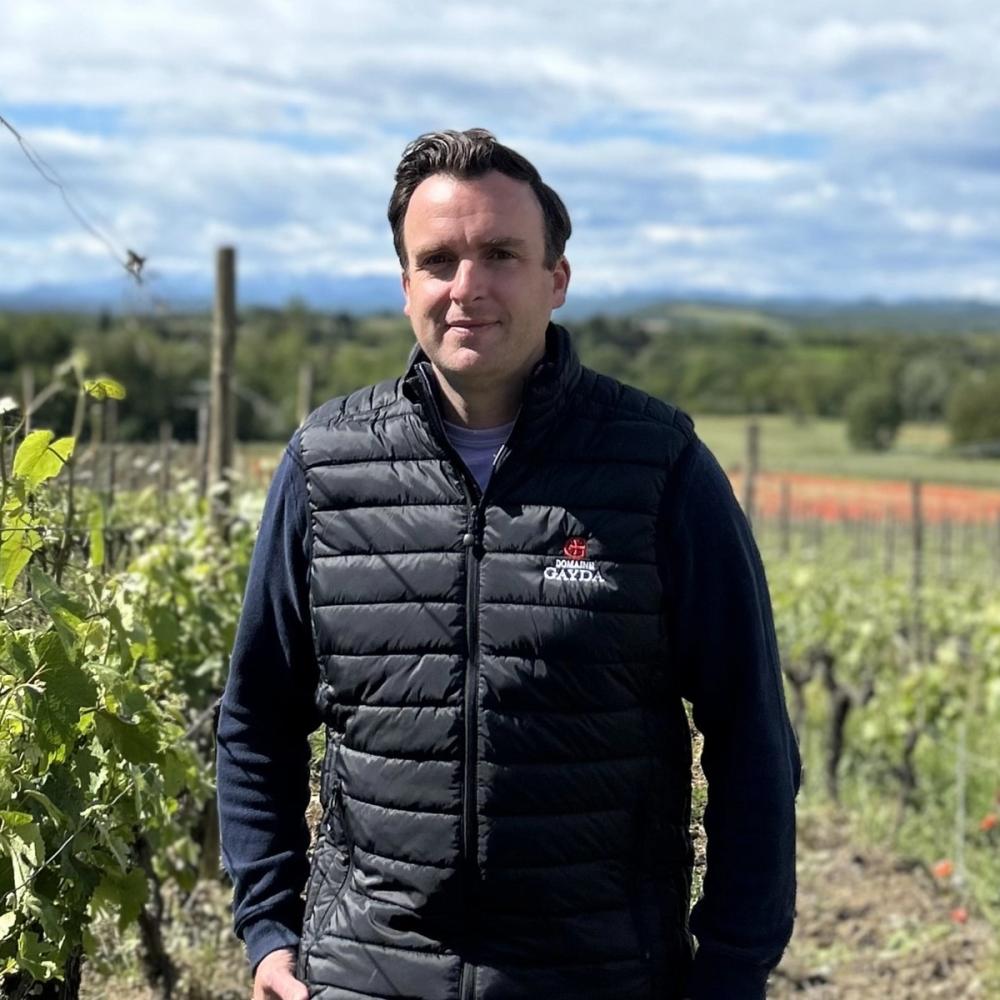
James Harvey was persuaded to re-join the wine industry in the new role of UK sales and marketing director at Domaine Gayda in the Languedoc
Similarly to a lot of my peers I started in Oddbins in the early 2000 which was a great training ground and then progressed through PRUK, Freixenet, Mentzendorff and Distell.
What have the key developments in your career to date and why were they important to you?
Perspective from experience has been the main factor. I've transitioned from retail into a sales and marketing environment covering the on and off-trade, from independent customers to multi-nationals, working for small, medium and global businesses.
I have also benefited from exposure to multiple attitudes and processes for the same target result. That has helped to fine tune all the inputs into my own style.
Also learning how to listen to what the customer and consumer want and needs is really important.
Why did you want to take on this new role at sales and marketing director role at Domaine Gayda?
Domaine Gayda's a sleeping dragon (not giant). When you visit you can see its potential. It starts with the people, all great individuals with high skill sets and a real passion for the business. The wines are absolutely fantastic and are some of the best value for money available.
What were your perceptions of Domaine Gayda before joining the company and what it can offer the trade?
I've know about Domaine Gayda for seven years or more. I think it had become a bit lost in the UK, but seeing how well regarded it is in France is eye opening. We want to help and promote the message that Languedoc-Roussillon produces some of the best wines in the world, where there really are a lot of hidden gems, such as ourselves, that UK consumers will gain a passion for.
What do you see as Domaine Gayda's unique position when selling its wines into the UK market?
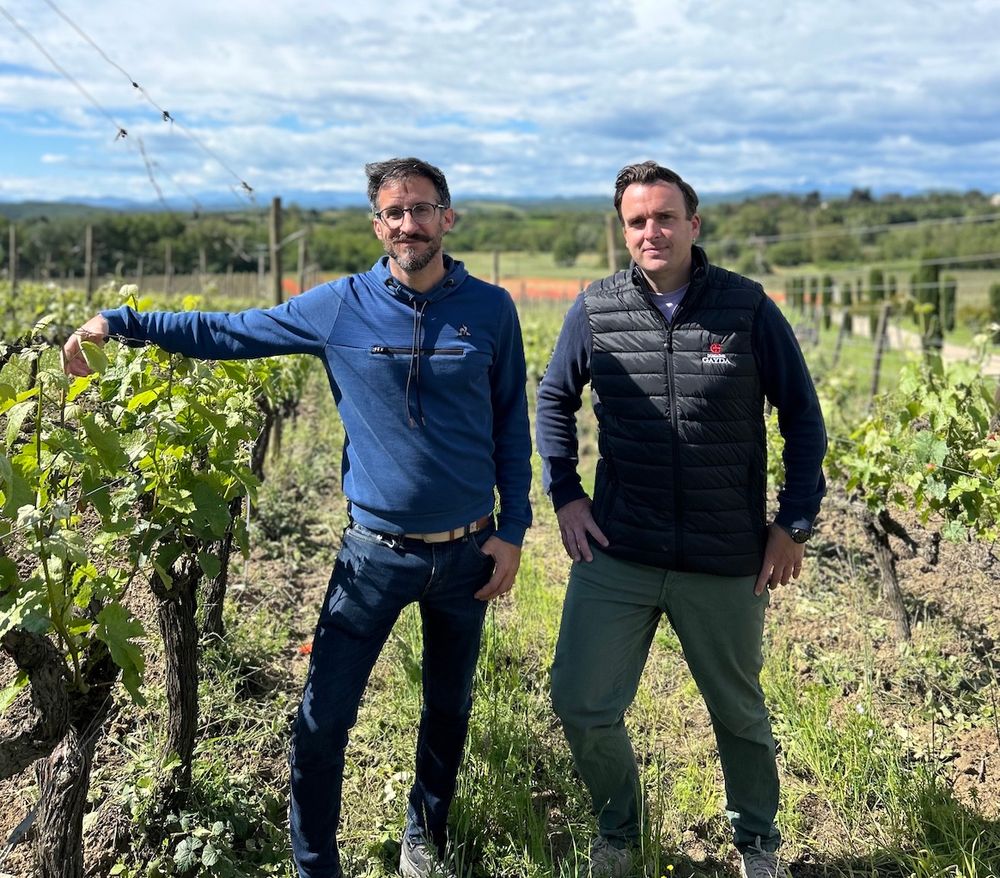
James Harvey with Domaine Gayda's long-standing winemaker Vincent Chansault
We have a great range of organic wines that I believe, punch above their weight in each price bracket. Having full control of and accountability for each wine, from vine to glass, showing our passion for organic and biodynamic production. We also have an extraordinarily talented winemaker (in Vincent Chansault) which helps.
Who do you see as being the ideal target customer and in which channel of the trade?
Our wines range from £12 to £50 RRP, which focuses us on certain channels. The ideal customer is easy. We want to invest our time, resource and quality wines, into businesses that are keen to collaborate with us working in tandem to bring our range to the UK consumer.
How do you determine whether a particular customer is going to be the right fit and partner for Domaine Gayda to work with?
The consumer is the most important part of the chain. We want, not just Domaine Gayda, but as an industry, to make sure the consumer experience is the best it can be. Gayda wants consumers to repeat purchase the wines in our range.
Going in reverse from the consumer to Domaine Gayda, it’s about identifying the potential touch points and influences that can improve and support the customer journey. From the winery to consumer’s glass we can have a positive influence. Be it the restaurant or store experience, their staff, distributor staff, availability, winemaking, consumer awareness and access to Domaine Gayda whether virtual or physical.
We want to work in tandem with UK businesses to pro-actively support the consumer touch points. That’s really key for us. It’s a two-way street and we are happy to invest in that.
How do you do that?
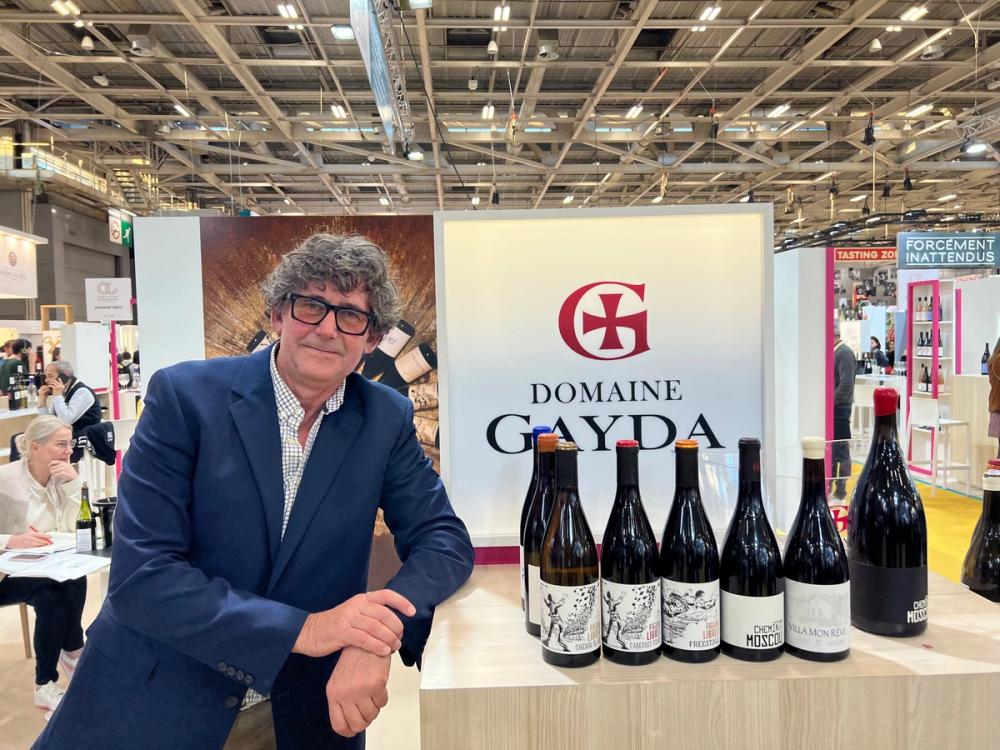
Tim Ford, co-founder of Domaine Gayda hopes to build strong partnerships with key independent wine merchants and restaurants across the UK
We want to build long term business partnerships, with companies whose customers will enjoy and engage with Domaine Gayda’s range.
To do that means offering proactive support for the business selling the wines. We need to be fully engaged with them and listening to their needs. We also need to be watching their customers so that we can really understand what they both need.
We then need to be flexible enough to adapt to each business's needs so that we can help improve the experience of the final consumer drinking the wine. Of course, there are a multitude of different processes and ways of working here, but ultimately it's all about working together to be successful and keep the final consumer happy.
With all the changes to the UK duty system are you doing anything to lower the alcohol in your wines or do you not see that as the right way forward?
In recent global IWSR data, it’s clear that lower alcohol products are on an upward curve, at different rates, in most major global markets. I assume most producers acknowledge and plan for the potential adaptability required, especially with its embedment in younger demographics entering the market.
For now we are holding production methods and abvs in line with current vintages, with have no plans to launch low abv products. We will, though, keep listening to our consumers.
Any new additions to the range that you are keen to promote?
Yes, absolutely. We will be launching the new Languedoc Family range into the UK imminently. We've teamed up with 14 other top wine producers from Languedoc Roussillon.
It means we will have over 120 wines in our portfolio, offering a really interesting range of wines covering many of the appellations in the region.
How would you describe your management style in how you work with customers and look to build closer relationships with them?
Transparency, fairness, accountability, consistency and being realistic.
What do you see as the biggest challenges facing premium on and off-trade businesses?
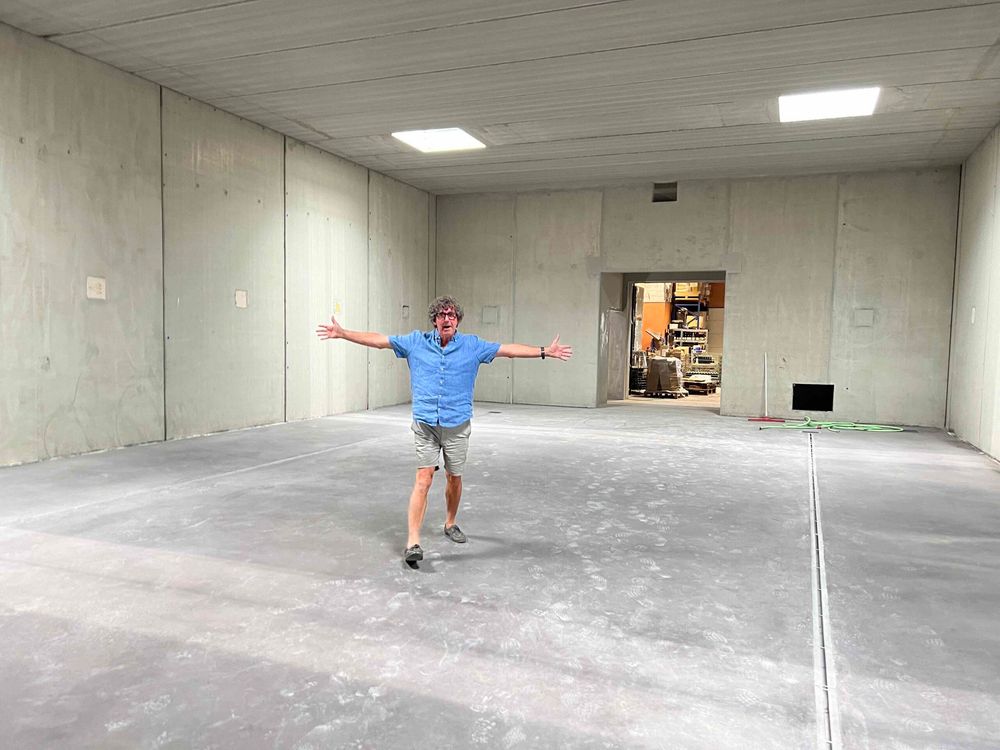
Tim Ford at the new winery at Domaine Gayda that is being built to give it the capacity to grow sales in France and its key export markets like the UK
Changing consumer demographics that are looking for more digital connection whilst drinking significantly less alcohol.
I have spent the last five years out of the industry doing an MBA and working at Procter and Gamble. It’s been interesting and eye opening to view the drinks industry from the outside. The volatility over the last five years is unprecedented with the government fluctuating legislation and regulations, making it increasingly hard to be successful and profitable.
There's so many touch points for each consumer demographic that it’s hard to please everyone, but how much specialisation and consumer focus can a business make to survive? It is a massive conundrum for the trade.
How do you see the UK premium wine on and off-trade market and what its biggest opportunities are?
I remember trying to define premium wine for months in previous roles. But ultimately it all comes down to knowing what consumers actually want.
There's so much choice and variation with products and how they are marketed and promoted. You then have a much publicised cost of living crisis affecting every segment.
It’s a tough gig at the moment, but it’s also a really tough market for consumers, most of whom have minimal time for wine, and sometimes as trade professionals we forget about the layers of complexity we apply. We need to simplify what we do - across the board.
We need to adapt to consumers and the socio-economic climate in the UK. We need to improve consumers experiential activity around wine, from purchase to drinking. We need to keep improving and simplifying all digital and tactile connections people have with wine through to how consumers interact with producers and winemakers in restaurants and their own homes.
* You can taste Domaine Gayda's wines and meet the team at the SITT tastings in London on September 16 and in Manchester on September 18. Find out more here.
* You can find out more about Domaine Gayda at its website here.
